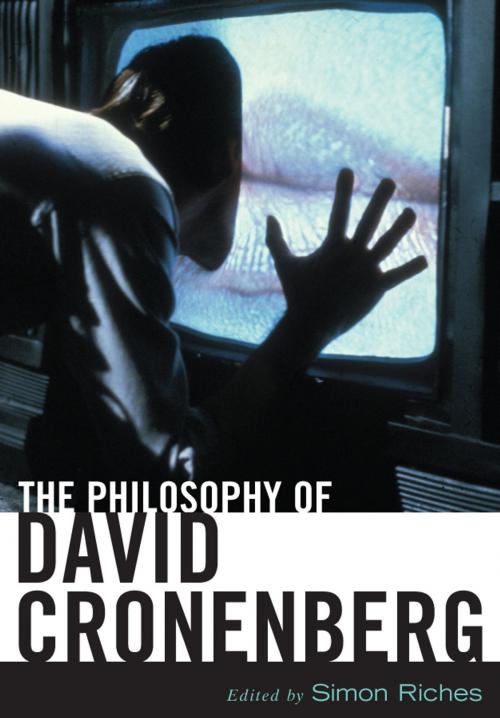The Philosophy of David Cronenberg
Nonfiction, Entertainment, Performing Arts, Religion & Spirituality, Philosophy| Author: | ISBN: | 9780813140605 | |
| Publisher: | The University Press of Kentucky | Publication: | April 23, 2012 |
| Imprint: | The University Press of Kentucky | Language: | English |
| Author: | |
| ISBN: | 9780813140605 |
| Publisher: | The University Press of Kentucky |
| Publication: | April 23, 2012 |
| Imprint: | The University Press of Kentucky |
| Language: | English |
Initially regarded as a cult figure with a strong following amongst sci-fi and horror film fans, Canadian filmmaker David Cronenberg emerged as a major and commercially viable film director with mainstream hits such as A History of Violence (2005) and Eastern Promises (2007). With his unique ability to present imagery that is both disturbing and provocative, Cronenberg creates striking films, noteworthy not just for their cinematic beauty but also for the philosophical questions they raise.
The Philosophy of David Cronenberg examines Cronenberg's body of work, from his breakthrough Scanners (1981) through his most recognizable films such as The Fly (1986) and more recent works. Editor Simon Riches and a collaboration of scholars introduce the filmmaker's horrific storylines and psychologically salient themes that reveal his pioneering use of the concept of "body horror," as well as his continued aim to satirize the modern misuse of science and technology. The Philosophy of David Cronenberg also explores the mutation of self, authenticity and the human mind, as well as language and worldviews. While Cronenberg's films have moved from small-market cult classics to mainstream successes, his intriguing visions of humanity and the self endure.
Initially regarded as a cult figure with a strong following amongst sci-fi and horror film fans, Canadian filmmaker David Cronenberg emerged as a major and commercially viable film director with mainstream hits such as A History of Violence (2005) and Eastern Promises (2007). With his unique ability to present imagery that is both disturbing and provocative, Cronenberg creates striking films, noteworthy not just for their cinematic beauty but also for the philosophical questions they raise.
The Philosophy of David Cronenberg examines Cronenberg's body of work, from his breakthrough Scanners (1981) through his most recognizable films such as The Fly (1986) and more recent works. Editor Simon Riches and a collaboration of scholars introduce the filmmaker's horrific storylines and psychologically salient themes that reveal his pioneering use of the concept of "body horror," as well as his continued aim to satirize the modern misuse of science and technology. The Philosophy of David Cronenberg also explores the mutation of self, authenticity and the human mind, as well as language and worldviews. While Cronenberg's films have moved from small-market cult classics to mainstream successes, his intriguing visions of humanity and the self endure.















